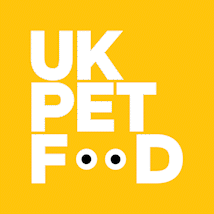Guinea Pig Size-O-Meter.
Ensure your guinea pig is a healthy size and weight with our Guinea Pig Size-O-Meter.
Whilst the pictures in the Guinea Pig Size-O-Meter will help, it may be difficult to judge your guinea pig’s body condition purely by sight alone.
Some guinea pigs have long coats that can disguise ribs, hip bones and spine, while a short coat may highlight these areas. You will need to gently feel your pet which can be a pleasurable bonding experience for both you and your guinea pig.
If you need help using this chart, please take it to your vet or pet care professional for advice.
Tips for understanding & maintaining your guinea pig's size/shape
- Always buy specialist guinea pig food (and not rabbit food). If you are unsure, ask your vet or pet shop for advice.
- Do not overfeed guinea pigs as they tend to control feed intake through volume rather than calories. Overuse of nutrient-dense feeds will cause obesity in guinea pigs.
- Ensure your guinea pig has an unlimited supply of good quality hay or fresh grass which are an essential form of fibre for guinea pigs. Hay and grass are necessary for your guinea pig's teeth, digestive system and to keep them occupied. Lawnmower (grass) clippings should never be fed due to potentially fatal conditions they may cause.
- Always provide access to fresh water from a bowl or metal-tipped feeding bottle. Check the bottle regularly to make sure it is working properly.
- Guinea pigs must have a daily supply of vitamin C. They need approximately 10mg/kg/day, either via suitable commercial feed, supplemented water, adequate fresh vegetables (not fruit), or combined. Vegetables such as kale, dandelion greens and parsley are also good sources of vitamin C for guinea pigs.
- Guinea pigs’ vitamin C requirements increase during times of stress or illness.
- If vitamin C (ascorbic acid) is being provided through your guinea pig's water, it will require refreshing every day. Vitamin C degrades rapidly in water in daylight and may affect the amount of water taken in. Instead, suitable food should be fed, and over-supplementation should be avoided.
- Full-grown guinea pigs can get fat quickly if they don’t eat the right food or don’t do enough exercise. Use our guinea pig size chart every four weeks or so to check your guinea pig’s body condition score.

